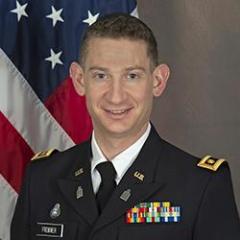
ACC Board Meeting Opening Kavana for December 1, 2023
It has been almost two months since Hamas attacked Israel with unprecedented lethality, killing approximately 1200 people, including some two hundred and sixty who had come to celebrate the end of Sukkot at the Supernova music festival in Re’im. The appalling concept of innocent victims drawn by their love of music to a place where they would ultimately meet with violence and abduction is eerily reflected in a midrash on this week’s parsha, Vayishlach. Following his reunion with Esau, Jacob journeys with his family to the Land of Canaan. There, the text tells us, his daughter Dinah ventured out “to visit the daughters of the land,” where Shechem, the local prince, “saw her, and took her, and lay with her, and defiled her.”[1] Seeking to assure Dinah’s innocence in the story, the rabbis imagine that she would never have left the safety of her family had she not been lured away from them by a musical ruse. “Because the daughter of Jacob was abiding in the tents,” the midrash describes, “and she did not go into the street; what did Shechem do? He brought dancing girls who were playing on pipes in the streets. Dinah ventured out to visit those daughters who were celebrating; and he seized her there.”[2] Whether by design or by coincidence, whether at festivals in Israel or concerts in England or nightclubs in Florida, the very power that music has to bring people together can sometimes leave them vulnerable to attack.
And yet we know that in the wake of such devastation, it is music again that offers us the surest provision of strength, and healing, and hope. Abraham Joshua Heschel, quoting a Chasidic teaching, writes that “There are three ways in which we respond to sorrow. On the first level, we cry; on the second level, we are silent; on the highest level, we take sorrow and turn it into song.”[3] In the midst of our collective sorrow, ACC cantors have guided their communities along the narrow bridge of fear with tireless song--leading special services, organizing concerts, and composing original music, but also delivering sermons, leading text studies, circulating petitions, and marching in solidarity, because, as we know, cantors do all those things as well. The fate of the remaining hostages still hangs in the balance, and the prospects for a successful conclusion to Operation Iron Swords seem tenuous at best. The intractability of the conflict seduces us towards a mental confinement of fatalism and despair and yet our members refuse to be thus confined. They carry the banner of Jewish peoplehood forward, not as soldiers in war but, as Arthur Szyk described, as soldiers in art.[4]
For Soldiers in the U.S. Army, a strict Code of Conduct governs the behavior of any personnel who are captured and imprisoned by enemy forces. Foremost among those instructions is the duty to attempt escape at any opportunity--except for Chaplains. Chaplains are required to remain in captivity, to minister to the ill and the wounded, until their release is ensured as well.[5] Our members are living out this reality right now--they do not know when the last congregant in their community will once again feel safe to go to work, or school, to proudly support Israel, or to gather at their synagogue, but they are there to walk with them in tears, in silence, and in song, until they do.
We trust there will be better times ahead. Only seven chapters ago in Genesis, Esau swore he would kill Jacob. In our parsha, they reunite in tears. Britain and America fought against each other in two wars, France and Germany fought against each other in three wars, Israel and Egypt fought against each other in four wars, yet all are now allied with each other in partnership. We hope the day will come soon when Israelis and Palestinians turn their swords into ploughshares and their ploughshares into musical instruments, in the words of Yehuda Amichai,[6] but until they do, we know the presence and the music of our cantors will unite our communities in strength while maintaining our conscience for all. We know they will free others from the despair, and the hopelessness that this tragic conflict breeds, even as they carry it themselves. And we know that the ACC and its board will be there to support them to the best of our abilities. How humbling an honor and a responsibility it is for all of us to serve them, as they serve their congregants and our people in this sacred work.
[1] Genesis 34:1-2
[2] Pirkei DeRabbi Eliezer 38:1
[3] Man’s Quest for God, Chapter 2
[4] Arthur Szyk: Soldier in Art > Overview – Szyk.com
[5] Code of Conduct, Survival, Evasion, Resistance, and Escape (SERE) Training (fas.org)

